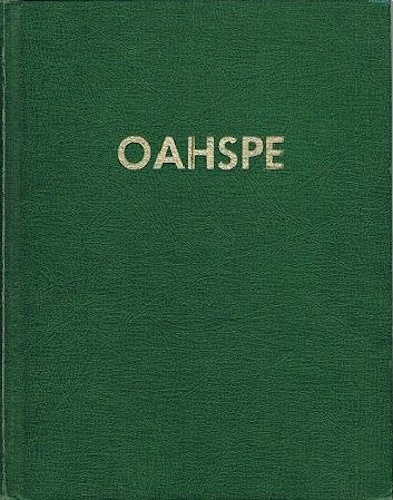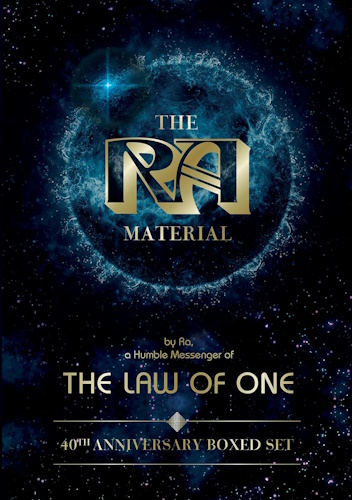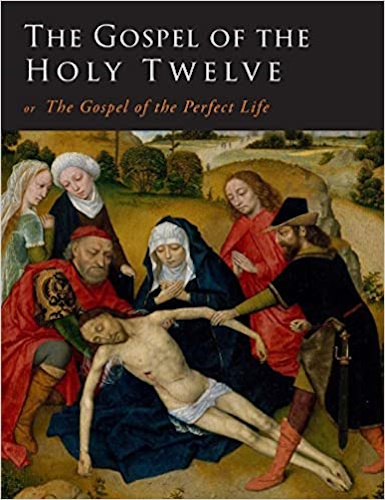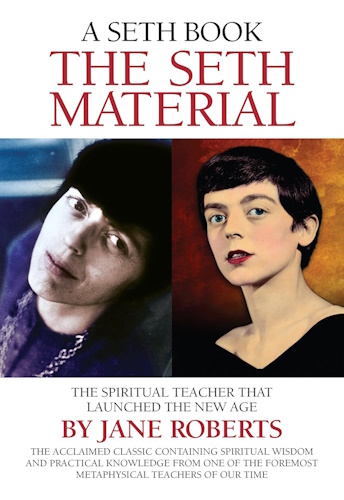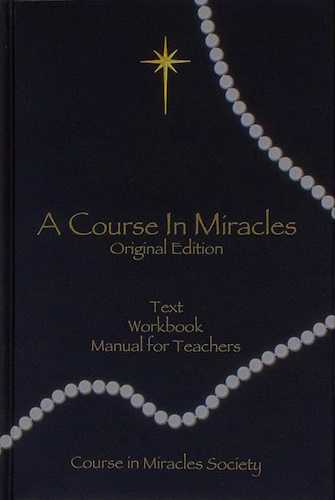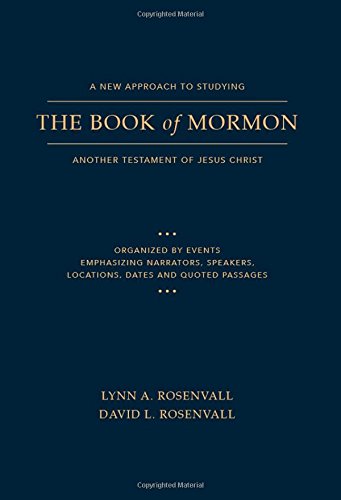
![]()
![]()
God's Book of Eskra
Chapter XXXVI
1. KA'YU said: Such is the base the ancients have given into our hands, but who could follow them into detail?
2. I was not born into the world for this; but to choose from each and all of them, what all of them will accept.
3. In the ancient days our country was sparsely settled; families were a good convenience. But, behold, the land is full of people. I have not to deal with a few scattered barbarians.
4. I have to deal with a learned people, who have scarcely room to stand. I am only one man; and ye, but seventy-two.
5. Of ourselves, we can do nothing. Shang Te (the true God) hath shaped the times to our hands. Whether we live to see it, it mattereth little. The time will surely come, when the emperor will be obliged to destroy the books of the ancients.
6. Let us therefore take the cream of them, and provide for their preservation while we may.
7. Ka'yu then divided up the labor amongst his seventy-two disciples; apportioning the books of the ancients justly amongst them.
8. And so great was the wisdom and scholarship of Ka'yu, that in twelve days' time some of his disciples were ready with their reports to begin. And from these reports Ka'yu dictated, and the scribes wrote down his words.
9. And it came to pass, that when a committee presented a revision before Ka'yu that he even knew it before it was read in the Council. And he dictated thereon, making the necessary alterations. After which, the subject was given to the scribes to re-write out in full.
10. Now the whole time of the first sitting of the Council was eight and a half years, and then they had been over all the work.
11. But so great was the wisdom and memory of Ka'yu, that he called out from the missings of his disciples sufficient to require yet two years' more deliberation.
12. And there were thus produced, from the lips of Ka'yu, twenty books, which contained the digest of upward of eighteen thousand books. Nor had any man in all the world ever done the one-tenth part so great a feat of learning.
13. The scribes wrote six copies for every one of the disciples; and when they were thus provided, and were ready to depart, Ka'yu spake to them, saying:
14. What say ye, is the highest, best satisfaction? And when the disciples had answered, some one thing, and some another, then the master said:
15. To know that one hath done the highest thing within his power, this is the highest, best satisfaction. For what is any man at most, but an agent of the Most High?
16. To be true to one's own highest idea, is this not serving the Father? To be neglectful in such conviction, is this not the sickness of all the learned?
17. What honor say ye hath any man? The disciples answered, some one thing, and some another. After a while, the master said:
18. If those beneath him honor him, then it is no honor to him. If those
p. 697
above him honor him, then it is a reproval of his other deeds. But if he honor himself, he hath great honor indeed. But who can honor himself, save he is perfect in his own sight? He can not do this, therefore he hath no honor in extreme. To choose little honor, to choose a medium line, is this not the highest, any man can attain to?
19. To grieve with one's own self, because of imperfection, this is great folly. To eat fruit and herbs and rice, these are the purest diet, but only a fool would starve rather than eat flesh. Rites and ceremonies are useful, but even these a man had better dispense with, than to go to war for them.
20. To rest on the ancients only, this is great folly. To honor the ancients only, and to believe that they alone received revelation, these are the extremes of a foolish understanding.
21. To remember that the Creator is Ever Present, and with as much power and love and wisdom today as in the ancient days, this is wisdom.
22. To try to find some good thing one can do, this is creditable. But to do nothing good, because one can not do it in his own way, this is execrable.
23. He who findeth a good work to do, and doeth it, hath much satisfaction. But he should not exult therein; for he hath only done his duty. I have no honor in these twenty books.
24. Two kinds of men I have found; those who are predestined by the Gods to accomplish a certain work, and those who are born with no predestination. The first are erroneously called the highest, because they are at the head of great undertakings; but they are nevertheless but instruments in the hands of the Gods. The others, who are born without a predestined work, never can understand the former.
25. To be born near enough to the Light to see it, and believe in it, and have faith in it, this is a great delight. To be so far from the Creator that one can not believe in His Person and Presence, this is pitiable.
26. I divorced my wife because I discovered she could not bring forth heirs to belief or faith. No man should be bound to a woman whose desires lay in the corporeal self. And women should have the same privilege.
27. He who is wed to the Great Spirit, how can he dwell with one who is wed to the earth?
28. To one man, celibacy is the highest life, because he hath joy in his Heavenly Father. But to one who hath not this joy, celibacy is a great punishment. The society must admit both conditions.
29. There is no mean betwixt these two; therefore, both must be provided for.
30. Those who desire celibacy, approach the termination of the race; those whose desires are the other way, are of a breed not so far on.
31. There need be no quarrel betwixt them. The destiny of both must be completed some time.
32. When a country is sparsely settled, those of extremes can go and live aside; it is nothing to govern such a state. Or to proclaim extreme doctrines before them. But when a country is full of people, the two extremes and the mean must dwell in proximity. It is not an easy matter to govern them wisely.
33. Whatever people can dwell together in great numbers on the smallest piece of ground, and yet have peace and plenty, such a people are the highest of all peoples.
34. Where an extreme doctrine can not be carried out, it is better to have a less extreme doctrine. People, like a drove of sheep, are much inclined to follow a leader. Herein, politicians and lawyers and judges run the state into war.
35. To legislate in such a way, that leaders can not lead the multitude into evil, this is wisdom. Were all leaders dead, the people themselves would not be very bad. Yet it is wrong to take any man's life, for life is something man hath no property in. Life resteth with Jehovih only; it is His.
36. Before the ignorant, and before fools, we speak by commandment. Chine'ya hath passed that age; our books must go persuasively, yea, in the mean.
37. To dictate to the learned, is to cast one's treasures into the fire. By asking them questions, we can often lead them.
38. Coaxing, with effect, is greater than dictation unobeyed. We preach to the rich man, that he should give all he hath to the poor, and he walketh away, giving nothing. When we say to him: Give a little, he doeth it. Herein the higher doctrine is the lower, and the lower doctrine is the higher, because it hath potency.
39. The ancients said, the first best thing was to love the Creator. I think so too. But when a philosopher asketh me to prove that the Creator is a Person, and is worth loving, I am puzzled. To accept Him as a Person, and as All Good, without criticism, this I find giveth the greatest happiness.
p. 698
40. I have seen men who would pull the Creator to pieces and weigh His parts to know His worth, but such men end in disbelief in Him. One such man who accomplished any good in the world, I have not found. He is in the presence of goodly men like a fly that delighteth in breeding maggots; pretty enough in himself, but a breeder of vermin in the state.
41. Yet he who saith: Let the evil practice evil, because the Creator created them, is of a narrow mind. Or, if he saith: Jehovih sent the rain-storm to destroy the harvest; or, Jehovih sendeth fevers to the dirty city; such a man lacketh discretion in words and judgment.
42. But he who perceiveth that man is part of the creation, in which he must do a part of the work himself, or fevers will result, such a man hath his understanding open in regard to the Father.
43. Betwixt the two, much casting of all things in Jehovih's face, and too little belief in Him, lieth the mean, which worketh the perfection of man.
44. To try to find the Creator with love and adoration, instead of with a dissecting knife; this leadeth man on the highest road. To trust in Him, wherein we strive to do our best; this is good philosophy. To lay about idly, and not plant our fields, trusting in Him; this is great darkness.
45. A wise man, perceiving the defects of the society, will not censure it, but turn to and find a remedy. It is for such purpose the angels of the higher heavens raise up great men in the world.
46. I have seen many people in many different kinds of worship, and they go through their parts in the sacrifice without perceiving the spiritual idea of the founders, and they are neither better nor worse for it. The infidel, with little discretion, seeing this, abuseth all the doctrines, but a wise man goeth between them to find the good which others lose sight of.
47. To find all the beauties in a man or woman, or in their behavior: this is God-like. To find their faults and speak of them: this is devilish. Yet, consider the man reverently, who speaketh not of persons. Who knoweth, may not all men be as automatons, some in the hands of Gods, and some in the hands of devils?
48. Such a doctrine would make us less severe with those who err, or who do evil. We hope for this.
49. I have seen the criminals being whipped, and I have said to myself: Only by a mere circumstance of birth, the wrong ones are being lashed. Otherwise, they had been governors of the states.
50. I once helped a bad man to elude his pursuers, and he escaped whipping, and he reformed himself. Since then, I have been a convert to great leniency.
51. The time will come when bad men will not be whipped nor tortured, but be appropriated to benefit the province; to shape our laws for such interpretation, is the beginning of wisdom in the government.
52. To appropriate all men to the best use; this is the wisest governor. To punish a bad man for vengeance sake; this is devilish.
53. If a man slay my sister, I raise my sword up before him, that he may run against it but I strike him not. To reform a man is better than to kill him; to lock up a bad man where he can do no harm, is sufficient for the state.
54. I have watched the soldiers in drill, and I said: This is a beautiful sight! For I saw the colors of their clothes, and the poetry of their manouvres.
55. But I watched them again, and I said: This is wicked! For I looked into the object of the drill, and I beheld blood and death. The state useth power by violent means, but the soul within us desireth to accomplish peacefully.
56. The standard of a wise man, to judge wisely, requireth of him to imagine he is a God, high up in heaven, and that all men are his children. He should consider them as a whole, and beneficially.
57. This I perceive: There were a few wise men among the ancients, as wise as the wisest of this day. But today there are more wise men than in the ancient times. Doth this not lead us to believe that a time will come, when all people will be wise?
58. I should like to see this; it would settle many vexed questions. The seers tell us the soul of man is immortal; moreover, that they have seen the spirits of the dead. I tried for many years to ascertain if this were true, but I could not discover.
59. Nevertheless, I said: It is a good doctrine; I will appropriate it. The Creator must have perceived it also. It is reasonable, then, that He created man immortal.
60. The priests have appropriated this doctrine also. Moreover, the ancients say, the good are rewarded in
p. 699
heaven, and the evil punished in hell. The people have been told this, and yet they will not be good.
61. Chine said: To deny one's self, and to labor for others with all our wisdom and strength: this is the highest doctrine. I saw a man on a mountain, calling to his flocks in the valleys, but they understood him not, and came not. Then he came mid-way down the mountain, and called, and the flocks heard him, and understood, and they went up to him.
62. It is easy to plan out high doctrines, but not so easy to give an efficient doctrine. He, who is mid-way, is the most potent. I have observed, that all peoples have higher doctrines, than they live up to. Yea, the boast of one religion over another is relatively of its superior height in the doctrines enunciated. And yet, they, who boast thus, practice neither virtue nor sincerity, for they live not up to the commonest doctrines.
63. On the other hand, the boast of a government is not of its virtues and goodness, and its fatherly care of the helpless, but of its strength in arms, and its power to kill. And these are the lowest of attributes.
64. To reach the government, and make it virtuous and fatherly, I was born into the world. This can be done only through the family, then to the hamlet, then to the province, and then to the empire.
65. But I could not do this without sincere men, who would faithfully practice my doctrines.
66. That ye are sincere, it is proved in your being with me; that you are virtuous and discreet, with propriety, is proved in you giving ear to my words. Yet, in this, how can I be sincere? I say, my words, when, in fact, I feel that no words I utter before the Council, are my words in fact.
67. Is this not true of all good men? wherein they are mouth-pieces for the Gods, or for the circumstances surrounding them? We open our mouth and speak, but where do our ideas come from?
68. When the sun shineth on the field, the herbs come forth; is it not the Creator's light falling upon us, that causeth our ideas to come forth? And if we keep away the grass and weeds, we receive a profitable harvest.
69. I would that all men would write a book on the Creator. Thought, directed in this way, will not go far from the right road.
70. To feel that He is with us, hearing all our words, seeing all our deeds: is this not the surest foundation to teach our children? To make them sincere, and to behave with propriety, what is so potent as faith in the Creator, and in His Son, Shang Te?
-
Urantia Book, 44:0.11 - The Celestial Artisans
Never in your long ascendancy will you lose the power to recognize your associates of former existences. Always, as you ascend inward in the scale of life, will you retain the ability to recognize and fraternize with the fellow beings of your previous and lower levels of experience. Each new translation or resurrection will add one more group of spirit beings to your vision range without in the least depriving you of the ability to recognize your friends and fellows of former estates.
-
Princess Bride 1987 Wallace Shawn (Vizzini) and Mandy Patinkin (Inigo Montoya)
Vizzini: HE DIDN'T FALL? INCONCEIVABLE.
Inigo Montoya: You keep using that word. I do not think it means what you think it means. -
Urantia Book, 117:4.14 - The Finite God
And here is mystery: The more closely man approaches God through love, the greater the reality -- actuality -- of that man. The more man withdraws from God, the more nearly he approaches nonreality -- cessation of existence. When man consecrates his will to the doing of the Father's will, when man gives God all that he has, then does God make that man more than he is.
-
Urantia Book, 167:7.4 - The Talk About Angels
"And do you not remember that I said to you once before that, if you had your spiritual eyes anointed, you would then see the heavens opened and behold the angels of God ascending and descending? It is by the ministry of the angels that one world may be kept in touch with other worlds, for have I not repeatedly told you that I have other sheep not of this fold?"
-
Urantia Book, Foreword - 0:12.12 - The Trinities
But we know that there dwells within the human mind a fragment of God, and that there sojourns with the human soul the Spirit of Truth; and we further know that these spirit forces conspire to enable material man to grasp the reality of spiritual values and to comprehend the philosophy of universe meanings. But even more certainly we know that these spirits of the Divine Presence are able to assist man in the spiritual appropriation of all truth contributory to the enhancement of the ever-progressing reality of personal religious experience—God-consciousness.
-
Urantia Book, 1:4.3 - The Mystery Of God
When you are through down here, when your course has been run in temporary form on earth, when your trial trip in the flesh is finished, when the dust that composes the mortal tabernacle "returns to the earth whence it came"; then, it is revealed, the indwelling "Spirit shall return to God who gave it." There sojourns within each moral being of this planet a fragment of God, a part and parcel of divinity. It is not yet yours by right of possession, but it is designedly intended to be one with you if you survive the mortal existence.
-
Urantia Book, 1:4.1 - The Mystery Of God
And the greatest of all the unfathomable mysteries of God is the phenomenon of the divine indwelling of mortal minds. The manner in which the Universal Father sojourns with the creatures of time is the most profound of all universe mysteries; the divine presence in the mind of man is the mystery of mysteries.
-
Urantia Book, 1:4.6 - The Mystery Of God
To every spirit being and to every mortal creature in every sphere and on every world of the universe of universes, the Universal Father reveals all of his gracious and divine self that can be discerned or comprehended by such spirit beings and by such mortal creatures. God is no respecter of persons, either spiritual or material. The divine presence which any child of the universe enjoys at any given moment is limited only by the capacity of such a creature to receive and to discern the spirit actualities of the supermaterial world.
-
Urantia Book, 11:0.1 - The Eternal Isle Of Paradise
Paradise is the eternal center of the universe of universes and the abiding place of the Universal Father, the Eternal Son, the Infinite Spirit, and their divine co-ordinates and associates. This central Isle is the most gigantic organized body of cosmic reality in all the master universe. Paradise is a material sphere as well as a spiritual abode. All of the intelligent creation of the Universal Father is domiciled on material abodes; hence must the absolute controlling center also be material, literal. And again it should be reiterated that spirit things and spiritual beings are real.
-
Urantia Book, 50:6.4 - Planetary Culture
Culture presupposes quality of mind; culture cannot be enhanced unless mind is elevated. Superior intellect will seek a noble culture and find some way to attain such a goal. Inferior minds will spurn the highest culture even when presented to them ready-made.
-
Urantia Book, 54:1.6 - True And False Liberty
True liberty is the associate of genuine self-respect; false liberty is the consort of self-admiration. True liberty is the fruit of self-control; false liberty, the assumption of self-assertion. Self-control leads to altruistic service; self-admiration tends towards the exploitation of others for the selfish aggrandizement of such a mistaken individual as is willing to sacrifice righteous attainment for the sake of possessing unjust power over his fellow beings.
-
Urantia Book, 54:1.9 - True And False Liberty
How dare the self-willed creature encroach upon the rights of his fellows in the name of personal liberty when the Supreme Rulers of the universe stand back in merciful respect for these prerogatives of will and potentials of personality! No being, in the exercise of his supposed personal liberty, has a right to deprive any other being of those privileges of existence conferred by the Creators and duly respected by all their loyal associates, subordinates, and subjects.
-
Urantia Book, 54:1.8 - True And False Liberty
There is no error greater than that species of self-deception which leads intelligent beings to crave the exercise of power over other beings for the purpose of depriving these persons of their natural liberties. The golden rule of human fairness cries out against all such fraud, unfairness, selfishness, and unrighteousness.
